This goes hard. Unironically if I walked into a guy's apartment and saw this my opinion of them would increase.
Growing large fruit in your apartment is very baller
In between life, we garden.

About
We're a warm and informative space for plant enthusiasts to connect, learn, and flourish together. Dive into discussions on care, propagation, and styling, while embracing eco-friendly practices. Join us in nurturing growth and finding serenity through the extraordinary world of houseplants.
Need an ID on your green friends? Check out: [email protected]
Get involved in Citizen Science: Add your photo here to help build a database of plants across the entire planet. This database is used by non-profits, academia, and the sciences to promote biodiversity, learning and rewilding.
Rules
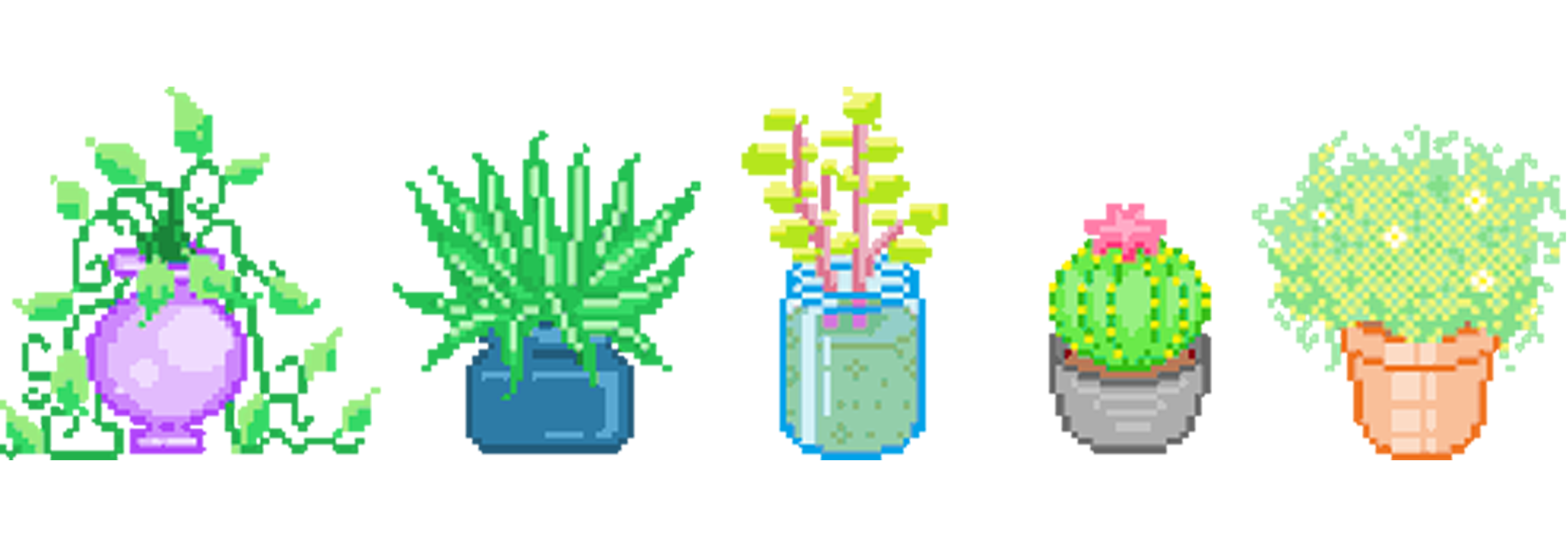
DM us to add yours! :)
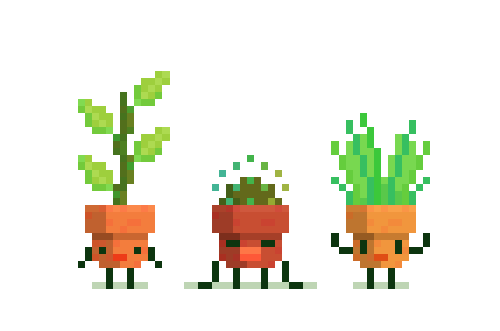
This goes hard. Unironically if I walked into a guy's apartment and saw this my opinion of them would increase.
Growing large fruit in your apartment is very baller
If the male flower die so soon, how do the female flowers get pollinated? I never understood that part.
Different plants make male/female flowers at different times. This is to prevent the plant from pollinating itself.
Since OP only has one plant, should they self-pollinate it with a paintbrush? It won't aquire genetic diversity but it should produce a pumpkin or two, right?
My plan is to remove the petals from the freshest male flower available and rub that directly.
I store the previous set of male flowers in a cup with a bit of water in the fridge :
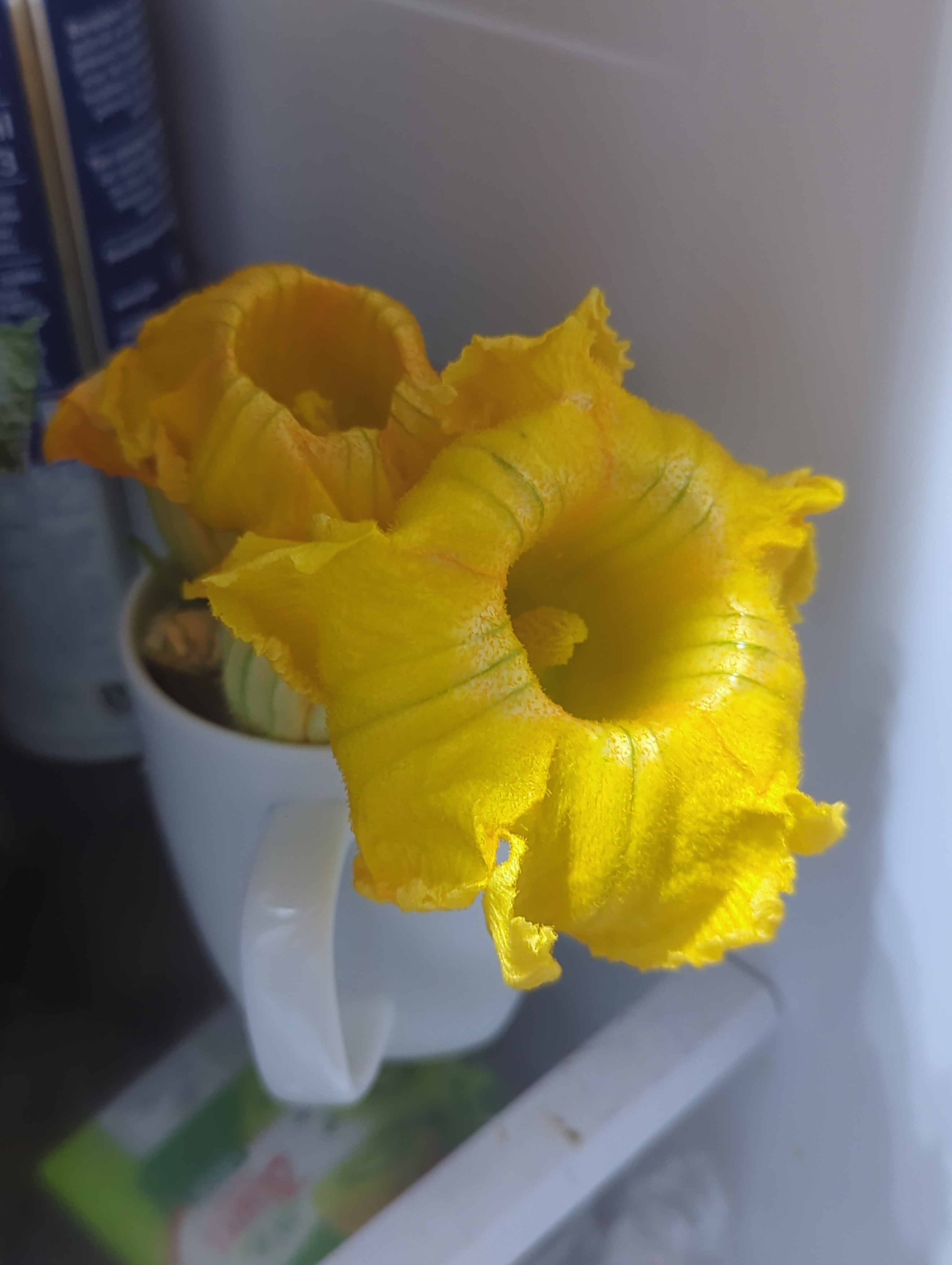
If I don't pick a male flower, the next day it looks like this:
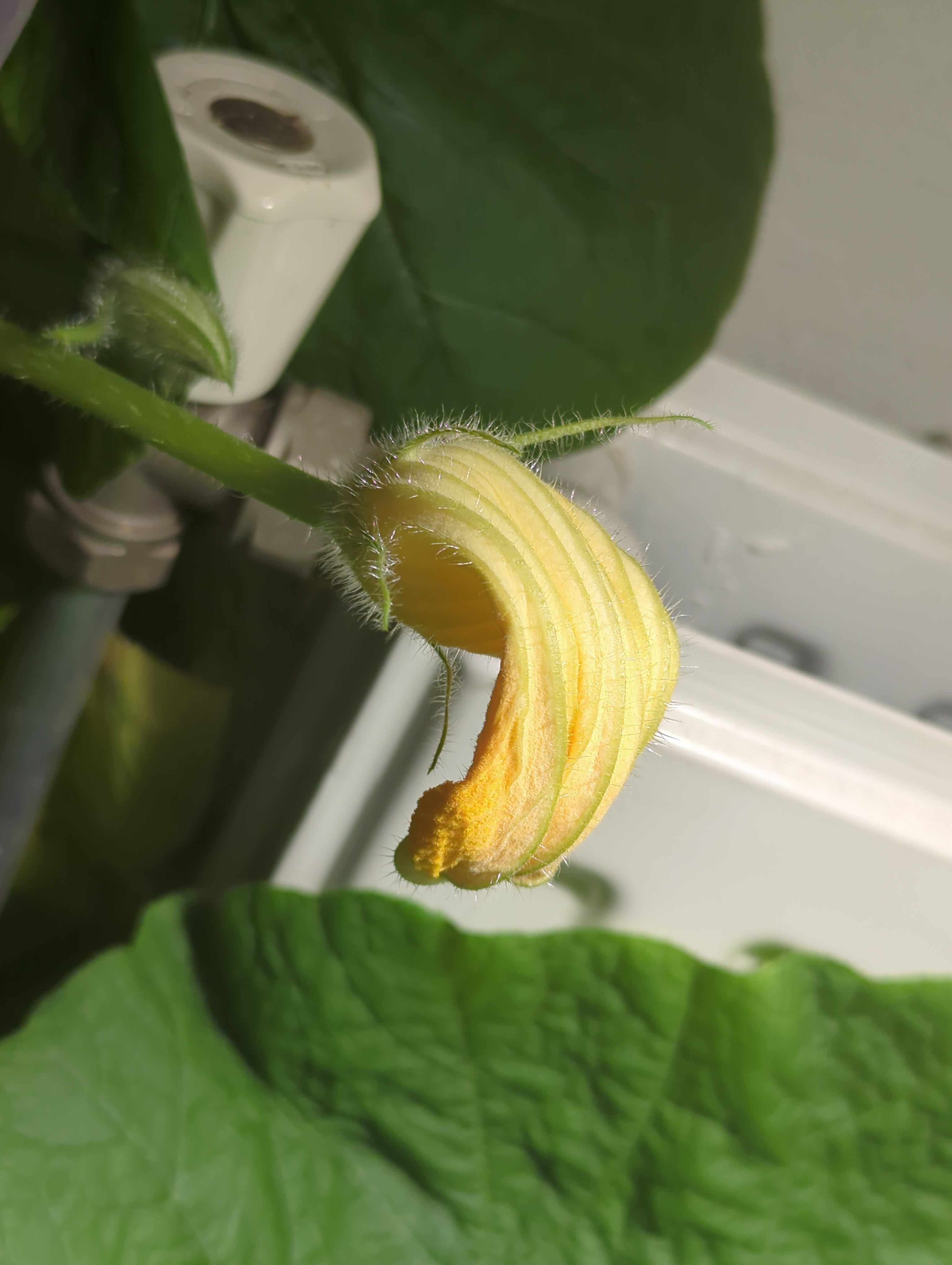
I did this in case that the male flowers would stop coming out when the females came. But I think my worry was not warranted... because the plant is swarming with male flowers. That's why I have begun cooking them.
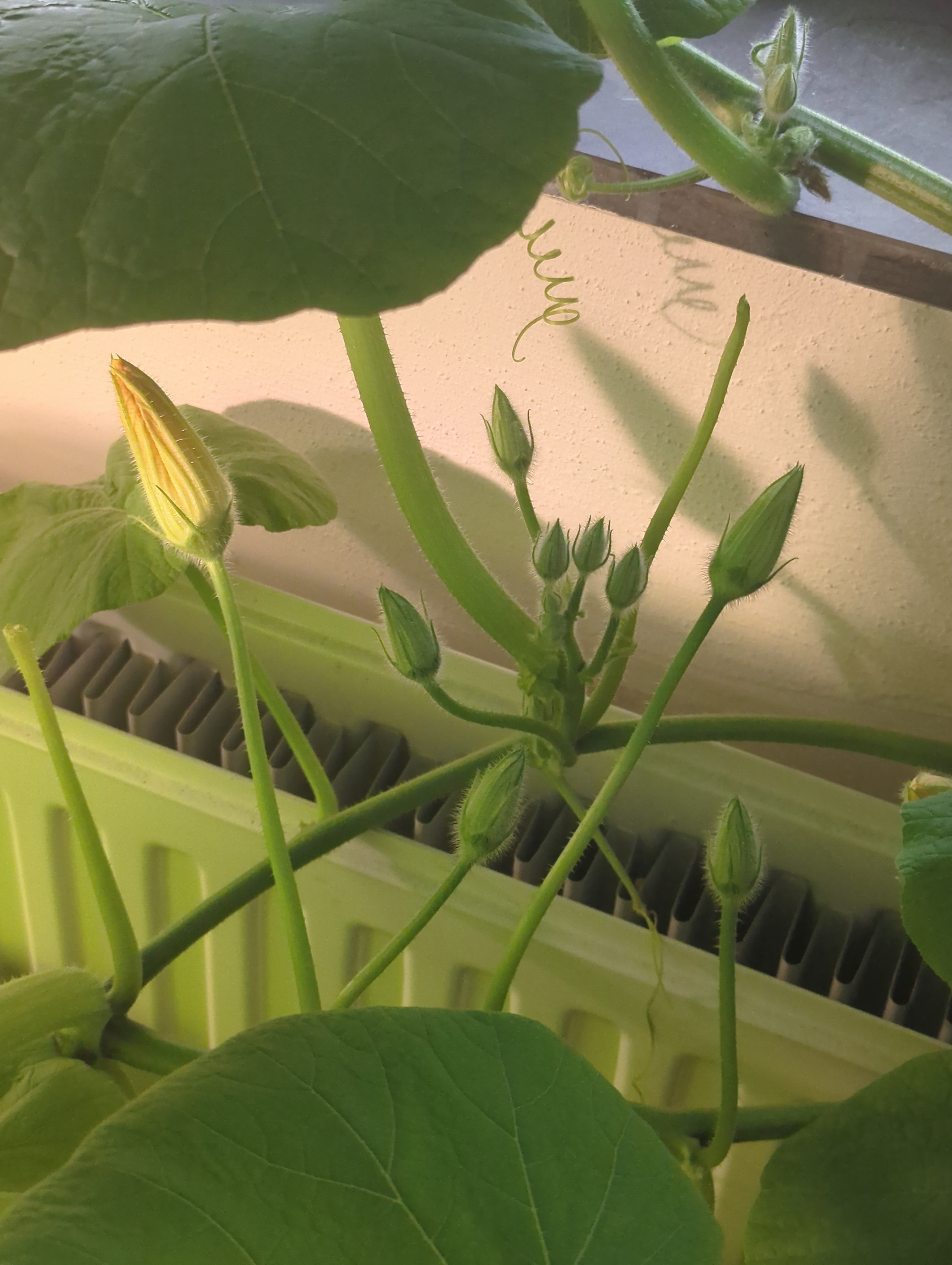
I am still not sure of whether I will pollinate a single flower to try to grow a large pumpkin, or if I will go for multiple pumpkins.
Maybe 2, an heir and a spare like a royal family
This is ridiculous and I love it. Good luck, hope you win!🍀
You might have better luck indoors than outdoors, depending on where you live. Where I live, anything squash-related planted outdoors develops powdery mildew and dies. I have planted many pumpkins and successfully harvested one. Ever. Maybe I should plant some inside.
If mildew doesn't get them, vine borers will :(
What's the bottle to the left? What did the flowers taste like? Sorry for so many questions this is really cool though.
The bottle is a carbon dioxide tank. It is connected to a regulator that can open/close the valve to let CO2 out. During the day it brings the CO2 level under the leaves to around 800 - 1000 parts per million (ppm). Usually the level in the air is closer to 400 - 500 ppm, and fast growing plants can grow faster with some extra CO2 in the air to build into sugars during photosynthesis. At least in theory... For me it is an experiment in CO2 regulation as I have measured and decreased CO2 levels in the past (when growing mushrooms and tempeh) but I had never actively delivered it, so I thought this would be a good opportunity to learn.
It turns out pumpkin flowers are very fragrant, and the odor is very pleasant, but I am not good at describing smells with words, sorry... To me it smells like a mixture of a rhododendron flower and a pumpkin. I recently went to a wedding in which they served ricotta stuffed zuccini flowers (very similar flowers) and the cook clearly knew what she was doing, in that case the zuccini flowers still had some of the fragrance and this made the dish taste very special. In my attempt I filled the flowers with some curry rice and then pan-seared them in butter, and all the fragrance went away in the process. So the flower was just a vessel with the soft texture of a petal and the taste of browned butter. I did not succeed in keeping any flower flavor. It was a quick-and-dirty experiment... I would like to learn more about cooking with flowers while keeping some flavor.
Thank you for the thorough explanation.
I didn't even know you can make tempeh grow faster that's kinda cool to hear.
In the case of tempeh keeping the right ambient temperature (~30) and adding a bit of vinegar to the beans is the best way I have experienced to make it grow fast and healthy. The CO2 I only measure to check for stale air. The tempeh fungus breathes in oxygen and exhales CO2, and if you have a lot of tempeh in a small incubator the CO2 can get too high.
In some techniques for mushroom growing, the mycelium is grown inside of a tub. The fungus exhales CO2 into the closed tub and inhibits this high CO2 condition inhibits fruiting. The fruiting stage can be stimulated by using a fan to push out the CO2. In the case of tempeh one can surround the tempeh with fresh air to stimulate the tempeh to produce spores, which can then be ground with white rice to create a powder to inoculate a lot more tempeh.
This dude’s the Tony Stark of pumpkin growing
I'm interested to know as well because the photo makes it look revolting lol
I don't know about the bottle but I've stuffed pumpkin flowers with cheese , breaded and fried them, and served with a tiny drizzle of honey. Delicious. Look up recipes for squash blossoms or zucchini blossoms, they are basically the same. You remove the stamens so you just have a pouch.
Hahahaha, woops, I had worse photos but none better 😂
Hahaha no worries, I read your reply to the other comment and it sounds interesting!
Wait till you see factory farming...
....??
that's so awesome. i wanna copy you now haha, also in an apartment
To be fair, there's gotta be a point where this classifies as "outdoors", but that's a sweet setup
This is not to disparage or discourage OP in any way, but when (and really if) people say something like "X is not a houseplant" they absolutely don't mean you can't grow such a thing indoors at all regardless of how much equipment and effort you use. That would be stupid, and easy to counter, since indoor greenhouses are a thing as are heaters, humidifiers, air conditioners, fans, and artificial lights.
By the time you're injecting CO~2~ you're well past the point of what would be considered typical indoor growing conditions. Let's be honest. I think we can mostly all agree that if there actually were people who said "you can't grow X indoors", those people likely meant under standard household conditions.
There is a bit of humor and a bit of truth. I don't have a garden and so when I was looking into whether it was possible to grow a pumpkin in a pot, most of what I found stated that the pumpkins need a lot of ground to have a strong and healthy root system, and a lot of sun, and so it is not recommended to grow them indoors. I thought that the plant would begin to grow but at some point the pot would not be able to sustain the root system and the plant would die. This has happened to me with many trees that I try to grow indoors - most recently my tamarind trees. They look perfectly healthy and then drop dead. Well, I am not certain of why the trees die but I suspect their roots rot.
But the humor is that I still don't think it is a good idea to grow this plant indoors. It has taken over a lot of space! My original plan was to prune it and keep it small, but I noticed that even the farthest leaves are able to pull moisture from the pot with no problem, and so I am letting the plant grow to see what happens.
Is that a hygrometer on the right??
Yeah, I have three moisture-in-soil sensors inserted around the plant. The idea was to use to them to control the irrigation, but they did not work out.
It looks rather snazzy! What's the brand?
The sensors are from AZDelivery, these ones. They are connected to an arduino nano which reads the capacitance values and sends them over to a raspberry pi 5. The raspberry pi 5 is connected to a few other sensors (CO2, particle counter, air humidity and temperature all from Sensirion), and there is a 7-inch raspberry pi display that the pi writes images to. I was making a home air quality station but I decided to place everything around the pumpkin instead for now, to see if I could get something interesting out of that. But, so far most of them have not been practically useful.
I might resort to growing my peppers and tomatoes inside this year. The slugs are everywhere end keep eating my plants, they've destroyed my aubergine and paprika plants.
I have been very succesful with indoor peppers. With tomatoes I had too much plant and a few cherry tomatoes (from a supermarket cherry tomato's seed)
Goals (for the distant future ...or maybe I delegate this task to another me in the multiverse, we'll see)